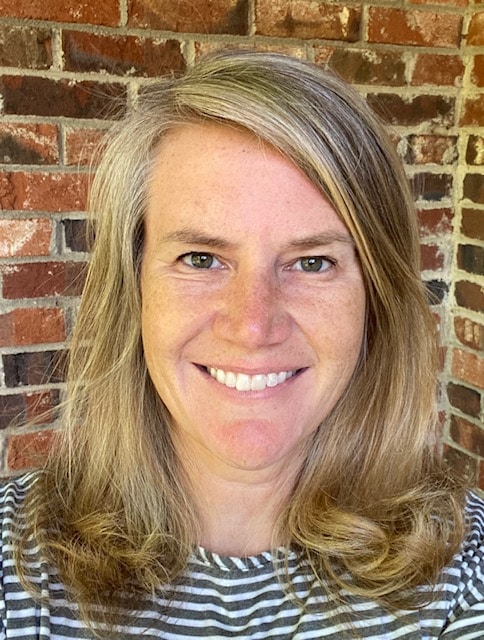
I have always been a sucker for a quiz like the ones found in magazines for teenage girls: What Kind of Friend Are You? Who is Your Style Icon? Which State Should You Live In? There was something about these questions, written by a stranger, that we all thought might unlock some secret revelation about ourselves. As I got older, I was introduced to a whole series of different classification categories. College brought Myers-Briggs testing, career assessments, and aptitude tests. I took a career quiz as a senior in college when confronted with the real and daunting deadline for eviction from academia. It was hard to know if I was answering the questions honestly or somehow trying to game the system to get an occupational recommendation that seemed in line with what I thought other people thought I should do.

Sarah Blackwell
We did studies on our new personality types after marriage (lion, otter, beaver, or golden retriever?). At work, we were separated into color groups (red, green, yellow, or blue?). Are you an internal or external processor? At church, we learned about how birth order shaped us. Malcolm Gladwell, in his book The Tipping Point, asked if we were a connector, maven, or salesperson. Online genealogy sites flourished as we all sought more and more information about where we came from and how that might shape who we are today. Was I really like the characteristics listed for a Libra: friendly and harmonious, seeking balance, peace, and justice? It seemed like all around me there were ways of classifying ourselves – of seeking to understand who we were and what we should do about it.
I think as an Enneagram 3 (another category!), I was always sort of shapeshifting to the situation at hand without really planting a firm stake in the ground that said “this is who I am.” You can get away with this practice with different groups of people – melding and transforming into what you think that they need at every turn. However, these make for inauthentic ways to encounter God. God knows the soul at the very core of who we are. Nowhere in scripture is this more evident than in Psalm 139, where the psalmist reminds us of how God knows us on a deep and personal level. For us, there may be an instinctive draw to know ourselves better, but sometimes we do not really investigate or learn about ourselves as a spiritual practice. Instead, we answer quizzes and tests in a way that leads to a declaration of the person we think we want to be. We stay on the surface and do not dive deep into an honest assessment of the shape of our soul. In understanding who we are, though, we can recognize our true selves, God’s beloveds.
How do we dig deeper and learn more about who we truly are at our core without the veneer of expectations? How do we shed the protective skin and reveal our vulnerable, yet true, selves? How can being deeper in tune with who we are allow for more meaningful and authentic encounters with God? Here are a few practices that might help you bring clarity to the view from within:
1) Write a spiritual autobiography. Think critically about the faith experiences that have shaped your life. Record major points of encounter with God or events and people that impacted your faith journey. Look for how God has directed you in the past so that you can be more aware of these ways in the future. Reflect upon what has been truly formational in your life. The things that had a large impact may not be the things you would initially think they are.
2) Choose a yearly verse or word to meditate upon. Let that verse help shape and guide you throughout the year. Repeat it daily. Make it the password to your accounts so that you are repeating it constantly. At the end of the year, write what you learned about yourself from living this verse. Over time, you will collect a series of scripture passages that will become a story of how you have progressed through your life. It is remarkable how many times my verse, chosen at the beginning of the year, proves to be a vital touchpoint in navigating the year ahead. For example, “Be still and know that I am God” (Psalm 46:10) proved to be the perfect verse for me the year my first son was born. Plus, eventually, you will know a lot of scripture in a deep and intimate way.
3) Examine your current “rule of life.” What order, structure, or routine have you built into your life? What elements are working? What may have served a purpose in the past but no longer is fruitful? What one thing might you want to add to your rule of life? As Renita Weems says, “Faith is the space between the last time we heard from God and the next time.” Rituals, spiritual practices, and routines can help sustain us even through the dry or silent times.

davisuko / Unsplash
4) Participate in meditation and yoga. These practices can provide the silence and solitude we often need to be able to discern God’s voice in our hearts. Strengthening and connecting our mind, body, and breathing can aid us in sensing when things are good or bad for us. Our bodies can tell us a great deal of information about how we are encountering the world around us if we learn to pay attention to them.
5) Investigate the spiritual formation that can come through the identification of your Enneagram type. More than just a trendy personality typing tool, the Enneagram has been used in religious communities for centuries as a means of seeking the true self. A good book to start the process is The Road Back to You by Ian Morgan Cron and Suzanne Stabile. Beyond just a personality test, the Enneagram can help you pinpoint spiritual practices that may be difficult for you but will provide deeper growth. An authentic look at your motivations can help encounter God more completely.
6) Consider hiring a spiritual director. Spiritual direction is a growing field of ministry where a director serves as a trusted guide as you seek to discern the intervening of the divine in your life. It has many therapeutic elements, but essentially it is someone asking the right questions about your spiritual growth. Richard Foster describes it as, “a process through which one person helps another person understand what God is doing and saying.” A director can help you view your daily life through a more spiritual lens.
I have friends who feel closest to God while writing. Others feel this connection while taking an early morning walk. Some must “forest bathe” – a process of being cleansed by encountering nature. Some need the pulse of rhythm going through their body in music. Some find God gathered around a table they have prepared for friends and family. One of my friends discovered an entirely new way of knowing herself by encountering God in yoga practice. And some friends’ spiritual journeys have been unlocked by the self-discovery that the Enneagram brought.
Others feel God with their hands in the soil and dirt under their nails. Sometimes it will be a series of trials and errors. Sometimes practices that have held us together for a long time suddenly start to fail us, and we must start the discovery process again. I have often joked that my spiritual practices right now are going to lunch and walks. Until you try different things, you do not know how you will best encounter God. The fact of the matter is that you cannot live someone else’s faith life – one size does not fit all. As Hamlet would say, “To thine own self be true,” because then the view from within will match the view from above.
Sarah Blackwell is a contributing writer at Word & Way and a 2020 graduate of the Gardner-Webb School of Divinity. She is adjunct instructor in the Religion and Philosophy Department at Wingate University in Wingate, NC. She enjoys working with youth and young adults at Providence Baptist Church-Charlotte. She is a Myers-Briggs ESFJ just like one of her favorite book characters, Lily Potter. Follow her writings at www.proximitytolove.org.






